Dear Friends of The Chijnaya Foundation,
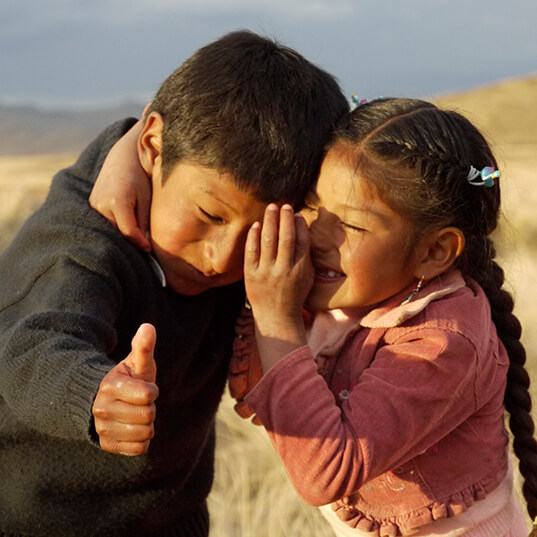
Life in communities at elevations above 12,500 feet in the Andes is difficult. The potato farmers, cheese producers, ceramic craftsmen and alpaca herders in this region of Peru struggle to survive in this harsh, rural environment and to maintain their cultural heritage in today’s world. They work hard, and it is a privilege for the Foundation to collaborate with the people in these villages in their efforts to improve their conditions and to fulfill their hopes for the future.
We began our work 11 years ago in one community, Chijnaya. We now work in 25 communities in the provinces of Lampa, Huancané, Puno, and Azángaro. Our basic model for development is grounded in comprehensive knowledge of the local cultural context and a philosophy based on the belief that successful efforts must involve an integrated approach to dealing with community problems. That means we commit ourselves to helping with projects in the areas of education, access to health care, and income-enhancing activities simultaneously and to sustained contact and involvement with the community as long as needed.
I hope you will take the time to read about our 2016 accomplishments which are summarized on the enclosed document. We are proud of the work we do. Our efforts are paying off in terms of improving the quality of life in our network of communities, thanks to the hard work of our staff and of the people in these communities. This coming year we need your support to expand our outreach to new communities and to intensify our programs in communities already in our network.

Ralph Bolton
President, Chairman of the Board, Dec. 10, 2016
The Chijnaya Foundation’s 2017 Goals
- Oral Health “Kusi Kiru” Program ($18k) 12%
- Smoke-Free Ecological Stoves Program ($10k) 6.5%
- Education and Scholarship Program ($15k) 9.8%
- Rotating Funds Micro-Loan Program ($95k) 62%
- Comprehensive Development of Alpaca Herding Communities ($15k) 9.8%
- Total Goal: $153,000 100%
The Chijnaya Foundation's 2016 Accomplishments (January – October)
During the summer, I sent out a news bulletin detailing our plans for 2016 and the projects that had been implemented from January through July. As we now approach the end of the year, I want to report on what has been accomplished through October on our various programs. Not all projects approved by the Board of Directors at the meeting in January have been carried out during this calendar year due to lack of funds to do everything we’d hoped to do. Those projects will be carried over into 2017.
Education and Village Youth Scholarship Program

This year the Foundation granted scholarships to 55 students from the network communities to attend a university or a technical institute. Given the limited resources of the families of these young men and women, obtaining a professional degree is a dream. By providing financial assistance, we make those dreams come true. This program is supported in part by a grant from an anonymous family foundation. Scholars from former years have been graduating and receiving their professional credentials. And they are obtaining jobs. Upward mobility is becoming a reality for the best and brightest children from our villages. Their parents and their communities are both proud of their accomplishments and grateful to the Foundation for making this possible. We also work with these students to impress upon them the need to give back to their communities once they have achieved success. While holding a scholarship, they carry out projects to benefit their home communities. In addition to the scholarship program, the Foundation has begun to explore the possibilities of helping to strengthen education at the elementary level in the schools in our communities. Rural education leaves much to be desired in this region. On this project we will collaborate with a group of anthropologists from the National University of the Altiplano in Puno.
Oral Health Kusi Kiru (“Happy Teeth”) Program
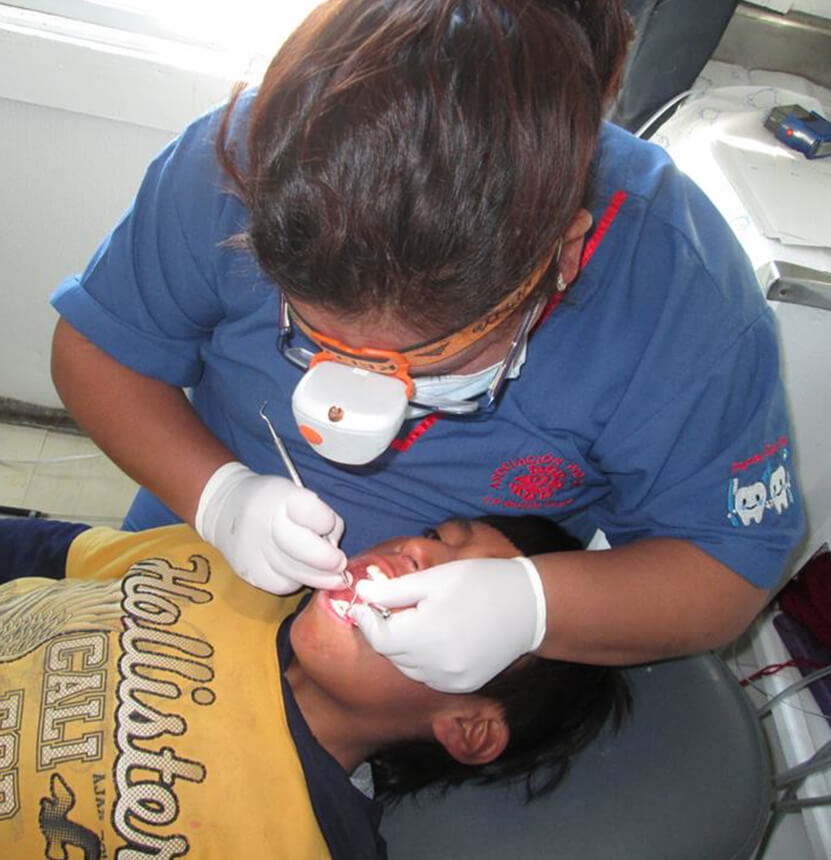
The Foundation continues to provide dental services in network communities. Dr. María del Carmen Aragon is a highly-dedicated dentist who is devoted to improving the oral health of both adults and children. Her work includes attention to prevention as well as attending to problems. Between January and the end of October this year, she carried out the following activities: a) dental care for 698 patients, including fillings, cleanings and extractions; 78 home visits to teach family members about good oral hygiene and the importance of hand washing; 13 community educational presentations on best oral health practices attended by 394 individuals; 61 visits to schools for talks and to perform 3,576 fluoride treatments.
Small Group Savings Program
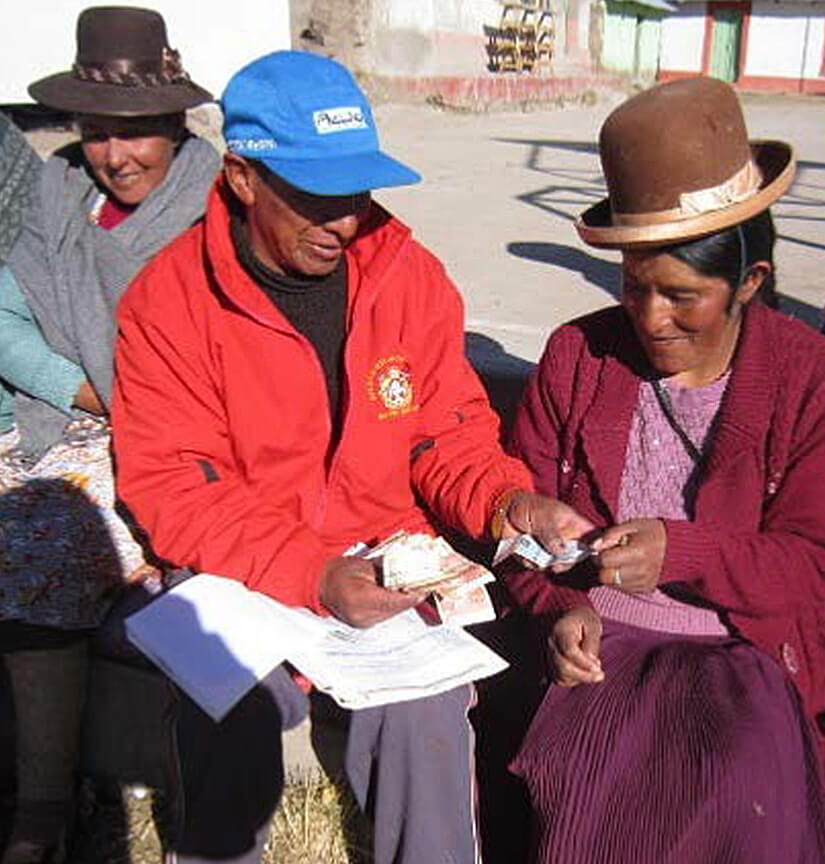
While the emphasis of the Foundation with respect to economic development has been on creating community-controlled rotating funds to provide capital for projects that will enhance family incomes, we recognize the importance of promoting savings. In situations of extreme poverty such as those in our communities, saving may be difficult. Our savings program involves teaching villagers about the importance of family savings and how to form groups to encourage saving. At this point, our facilitator, Rosmery Montesinos, has succeeded in forming ten groups in eight communities with a total active membership of 101 individuals, double the number from 2015. As these groups gain experience and word spreads, we can expect the idea to gain acceptance with more groups forming in 2017.
Agricultural Equipment Program
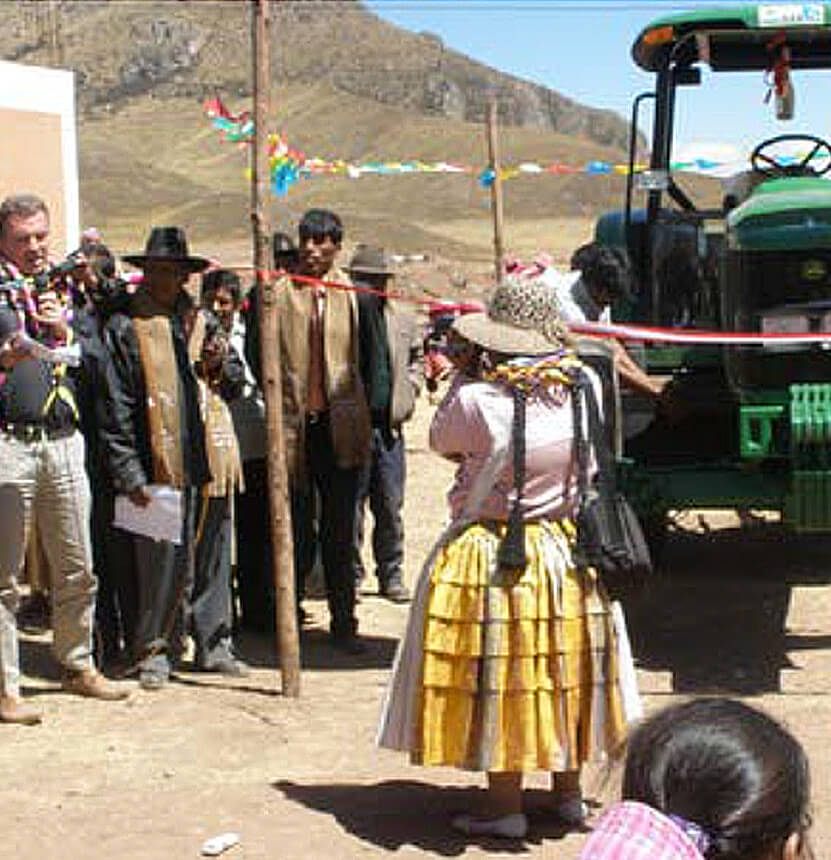
The economy in most of our communities is based on the raising of cattle for the production of milk and milk products such as cheese and yoghurt, both for consumption and for sale. Extensive parcels of land must be cultivated to produce the forage crops the animal require. Traditional Andean technology for plowing using a foot plow is insufficient. Access to agricultural machinery is essential. While some municipalities rent out tractors and other equipment, the demand for these services greatly exceeds capacity. Consequently, the Foundation has assisted several communities to purchase equipment, such as a John Deere tractor for Chijnaya ($50,000 loan paid off), and this year a hay baler for Tuni Requena. We arranged for a loan of $14,500 between a Foundation supporter and the community for this purchase, to be paid back with low interest over three years. The baler will earn money for the community in addition to serving the needs of its member. We seek additional lenders who are willing to provide a loan to a community directly or via a donation to the Foundation.
Smoke-Free Cooking Stoves Program
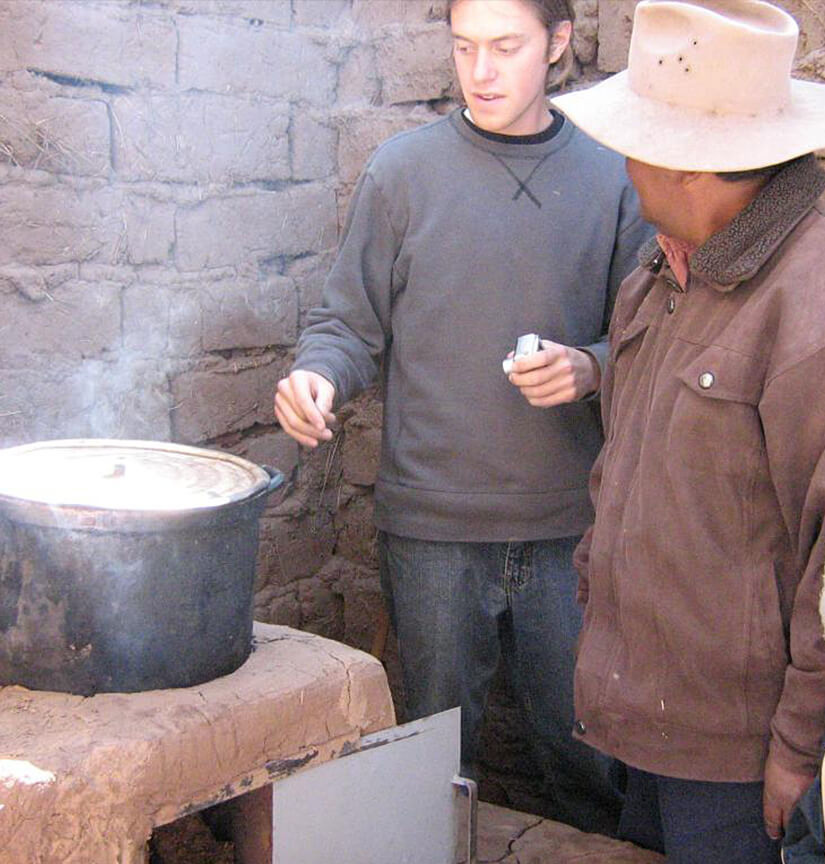
The smoke-free or ecological stoves are a significant component of our efforts to improve the health of people in our communities. The highly-polluted environment in the traditional kitchens contributes to respiratory ailments and vision impairment (e.g. cataracts), among other conditions. As of October 31, 2016, we financed 60 new stoves in the communities of Ángara Bajo, Ángara Alto, Queñuani Alto and Queñuani Bajo. Before the end of the year we expect to construct another 30-45 in Alto Pucarayllu, Qhepa and Ccacco. In 2017 we will need funds to help more families to obtain these improved stoves.
Microfinance Program: Increasing Family Income
Our microfinance program funds projects to increase family incomes. The funds are managed by the communities with the advice and support of Foundation/Pro-DIA staff. In 2016 these rotating funds were invested in a great diversity of revenue-producing projects. Here is a summary of the more than 200 projects completed between January and the end of October of this year:
Project |
# of Loans |
Project |
# of Loans |
|---|---|---|---|
| Alfalfa seeds | 31 | Ceramic artisan supplies | 9 |
| Oats seeds | 19 | Ceramic artisan equipment | 3 |
| Milking stations | 17 | Ceramic artisan studios | 31 |
| Mini stables | 1 | Sheep sheds | 4 |
| Feeding troughs | 28 | Milking equipment | 16 |
| Animal sheds | 16 | Homestay tourist facilities | 20 |
| Water tanks | 2 | Portable baby alpaca sheds | 11 |
| Purchase of milk cows | 8 | Hay storage sheds | 15 |
Collaborative Program for Alpaca Herding Communities
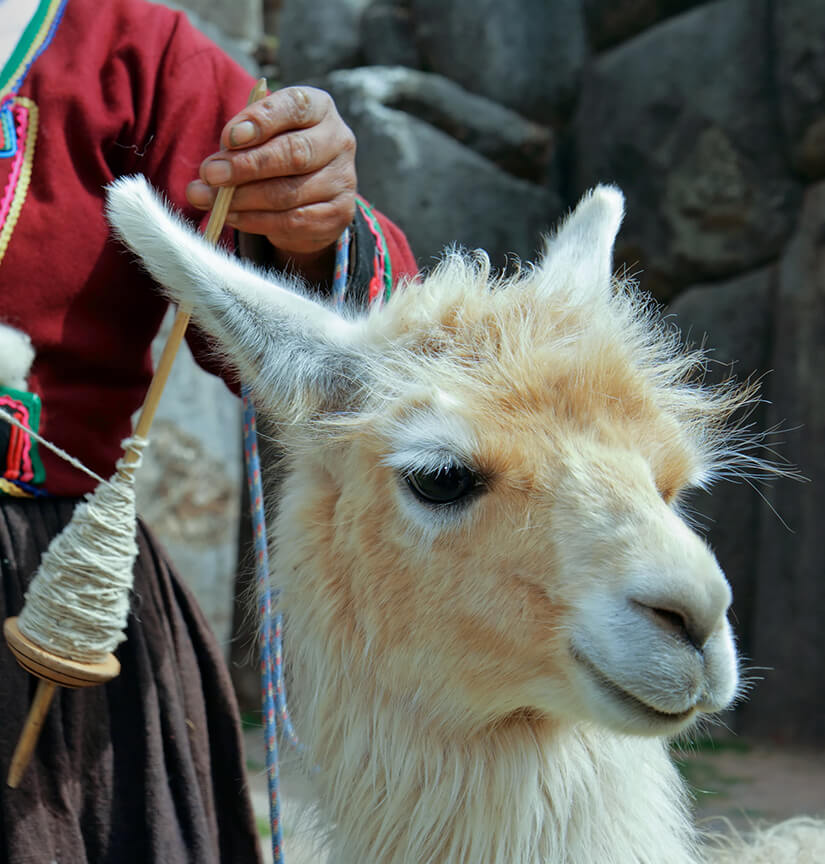
Five of our communities exist at altitudes above 14,000 feet, above the tree line and above the limits of agriculture. The livelihood of people in these communities is based on raising alpacas and llamas. Income is derived primarily from selling alpaca fiber. Coarita, a community in the District of Paratía is famous throughout Peru for its traditional music and dance, but the richness of its expressive culture contrasts sharply with the material poverty that prevails. In cooperation with the Nuñoa Project, Conopa and Engineers without Borders, the Foundation has developed a program to assist these communities. This year the team of Peruvian and North American veterinarians vaccinated 1,337 alpacas, performed ecographic exams on 281 female alpacas, loaned high quality reproductive males to 31 families, ear tagged 785 animals, and gave 8 talks on alpaca management. After testing a prototype of a portable baby alpaca shelter designed by engineers from the Utah State University, we built the first 11 for families in La Union. We expect to expand the shelter program significantly in 2017 now that the prototype has been shown to reduce baby alpaca mortality.
Reuniting 25 Communities in the Pro-DIA Network

Finally, one very exciting development this year has been the initiation of reunions of community leaders from the 25 communities in the Pro-DIA network. The goal is to train them to assess their needs and to develop medium-range plans for what their communities wish to accomplish in the next several years, especially with respect to their community rotating funds. In addition to the network meetings, the leaders met with their own communities to work on planning. They were assisted in this by Jhuver Aguirre, our project director, and anthropology students from the San Agustin National University of Arequipa.
<div class=”clearfix et_pb_popup_builder_1 et_pb_module”>
<a class=”trigger_sb_divi_modal trigger_sb_divi_modal_585178f95c4cc”><span class=”sb_pb_modal_button”>Yes, I Want to Join the Expedition!</span></a><script>
jQuery(document).ready(function() {
jQuery(“.trigger_sb_divi_modal_585178f95c4cc”).colorbox({ maxWidth: “63%”, maxHeight: “50%”, href: “#sb_divi_modal_585178f95c4cc”, inline: true, width: “63%”, height: “50%” });
jQuery( window ).resize(function() {
if (jQuery( window ).width() < 550) {
jQuery.colorbox.resize({width:”90%”, height:”70%”});
} else {
jQuery.colorbox.resize({ maxWidth: “63%”, maxHeight: “50%”, href: “#sb_divi_modal_585178f95c4cc”, inline: true, width: “63%”, height: “50%” });
}
});
});
</script>
<div style=”display: none;”>
<div id=”sb_divi_modal_585178f95c4cc” class=”sb_divi_modal”>
<div class=”container-layout”>
<div class=”et-main-area”>
<div class=”et_pb_section et_pb_section_9 et_pb_with_background et_section_regular”>
<div class=” et_pb_row et_pb_row_9″>
<div class=”et_pb_column et_pb_column_4_4 et_pb_column_12″>
<div id=”et_pb_contact_form_0″ class=”et_pb_module et_pb_contact_form_container clearfix et_pb_contact_form_0″ data-form_unique_num=”0″>
<h1 class=”et_pb_contact_main_title”>Contact Us</h1>
<div class=”et-pb-contact-message”></div>
<div class=”et_pb_contact”><form class=”et_pb_contact_form clearfix” action=”” method=”post”>
<p class=”et_pb_contact_field et_pb_contact_field_0 et_pb_contact_field_half”><label class=”et_pb_contact_form_label” for=”et_pb_contact_name_1″>Your Name</label>
<input id=”et_pb_contact_name_1″ class=”input” name=”et_pb_contact_name_1″ type=”text” value=”Your Name” data-required_mark=”required” data-field_type=”input” data-original_id=”name” /></p>
<p class=”et_pb_contact_field et_pb_contact_field_1 et_pb_contact_field_half et_pb_contact_field_last”><label class=”et_pb_contact_form_label” for=”et_pb_contact_email_1″>Email Address</label>
<input id=”et_pb_contact_email_1″ class=”input” name=”et_pb_contact_email_1″ type=”text” value=”Email Address” data-required_mark=”required” data-field_type=”email” data-original_id=”email” /></p>
<p class=”et_pb_contact_field et_pb_contact_field_2 et_pb_contact_field_last”><label class=”et_pb_contact_form_label” for=”et_pb_contact_message_1″>Your Message</label>
<textarea id=”et_pb_contact_message_1″ class=”et_pb_contact_message input” name=”et_pb_contact_message_1″ data-required_mark=”required” data-field_type=”text” data-original_id=”message”>Your Message</textarea></p>
<input name=”et_pb_contactform_submit_0″ type=”hidden” value=”et_contact_proccess” />
<input class=”et_pb_contactform_validate_field” name=”et_pb_contactform_validate_0″ type=”text” value=”” />
<div class=”et_contact_bottom_container”>
<div class=”et_pb_contact_right”>
<p class=”clearfix”><span class=”et_pb_contact_captcha_question”>13 + 5</span> = <input class=”input et_pb_contact_captcha” name=”et_pb_contact_captcha_0″ size=”2″ type=”text” value=”” data-first_digit=”13″ data-second_digit=”5″ data-required_mark=”required” /></p>
</div>
<!– .et_pb_contact_right –>
<button class=”et_pb_contact_submit et_pb_button et_pb_custom_button_icon” type=”submit” data-icon=””>Submit</button>
</div>
<input id=”_wpnonce-et-pb-contact-form-submitted” name=”_wpnonce-et-pb-contact-form-submitted” type=”hidden” value=”60383e9fa0″ /><input name=”_wp_http_referer” type=”hidden” value=”/wp-admin/admin-ajax.php” />
</form></div>
<!– .et_pb_contact –>
</div>
<!– .et_pb_contact_form_container –>
</div>
<!– .et_pb_column –>
</div>
<!– .et_pb_row –>
</div>
<!– .et_pb_section –>
</div>
</div>
</div>
</div>
</div>
[/et_pb_popup_builder]
Important Facts About The Chijnaya Foundation
- Members of the Board of Directors of the Foundation are all volunteers who pay their own expenses to attend Board meetings and when working on projects in Peru.
- All administrative expenses of the Foundation are covered by donations from Board members; all private individual donations are devoted exclusively to projects in Peru.
- The Foundation spends less than 2% of its revenues on fundraising.
- The operational arm of the Foundation is our legally-constituted Peruvian counterpart, the Pro-DIA Association. Pro-DIA has a full-time paid Project Director, a young anthropologist (Jhuver Aguirre), and two part-time employees, including the dentist in charge of the oral health program (Dr. Maria del Carmen Aragon) and a young woman responsible for our savings programs (Rosmery Montesinos). These staff members are Peruvians.
- The work of the Foundation is carried out in a limited set of communities, 24 at the present time. We believe that to be effective it is necessary to focus on a limited geographical and cultural area, and that all work must be based on deep understanding of the local culture.
- Once a community becomes a partner and member of our network of communities, we work with the community long term to develop a comprehensive development strategy and on-going collaboration to meet the goals of the community. We do not engage in hit-and-run humanitarian work. We emphasize self-help and sustainable development.
- All projects must emerge from the community itself and be based on the perceived needs of members of the community. To assure success, our Board members and the Pro-DIA staff serve as consultants, assisting the community in planning the implementation of approved projects.
- The Foundation receives no government funding for any of its projects.
- The Foundation was started by a group of returned Peace Corps Volunteers and social scientists who have done research in Peru, plus their friends. The current Board of Directors includes Peruvians as well as members who reside in the United States, Australia and Italy. Please contact us if you are interested in participating in our work in any capacity.
- We gladly welcome donors and potential donors to visit Peru and to observe the work we do. Visitors may participate in our community meetings and talk to the beneficiaries of our work. Contact us if you are interested in arranging a visit.
- We employ no fundraising gimmicks: no free address labels, no pictures of starving kids intended to tug at your heartstrings, no one-week matching funds. We explain the need. We appeal to your desire to help those in need, but to do so in a way that respects the dignity of all persons, those who give help and those who receive it.
Thank you • Gracias • Yuspagarasunki
A heartfelt thank you from everyone at The Chijnaya Foundation and from the people of the Altiplano to the donors whose generosity makes our work possible.
